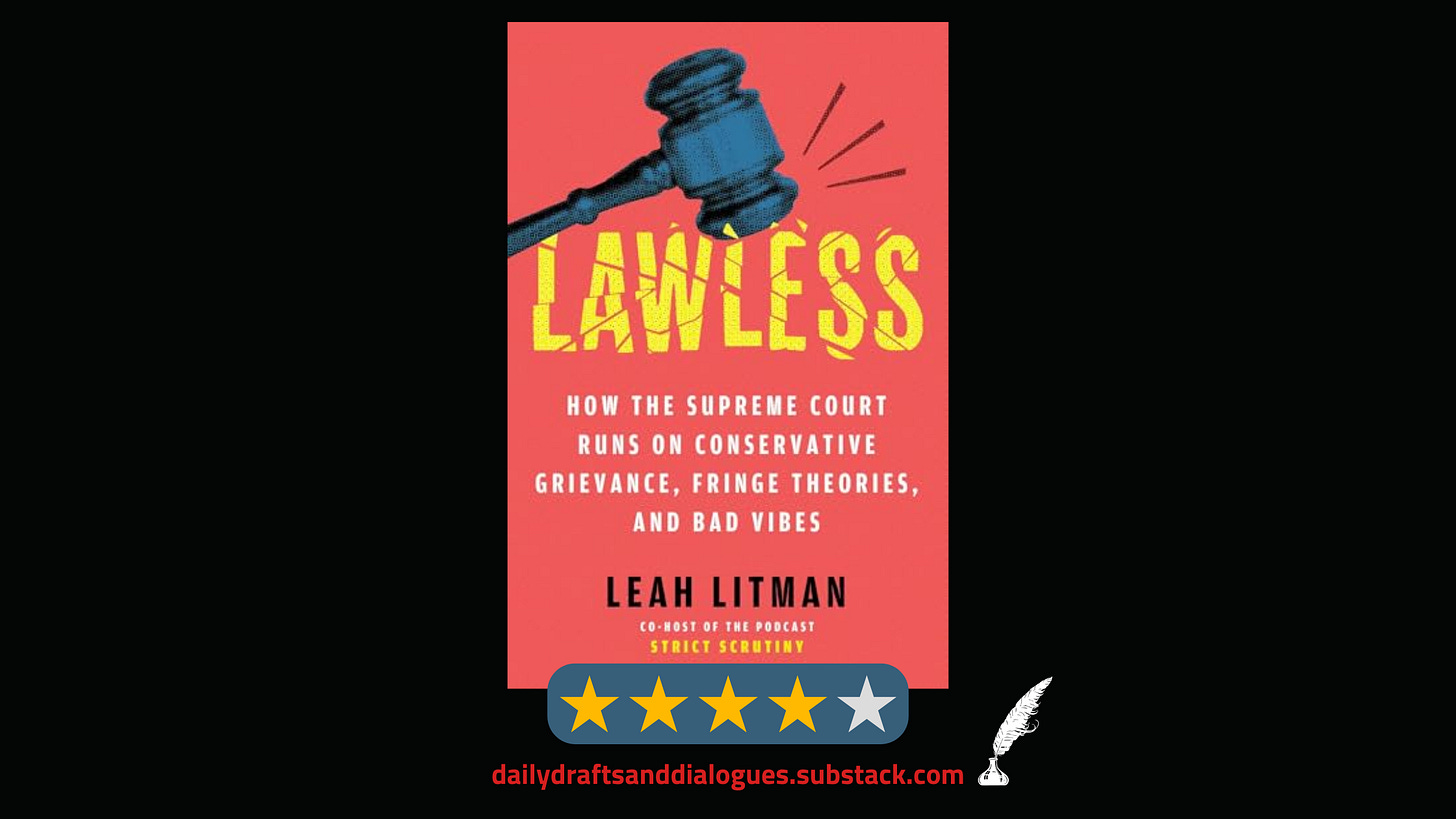Book Review: Lawless
Here’s my review of Lawless by Leah Litman. Don’t forget to leave a comment if you’ve read it too, or if you plan to read it. Then see today’s writing prompt at the bottom of this post.
Lawless: How the Supreme Court Runs on Conservative Grievance, Fringe Theories, and Bad Vibes by Leah Litman ended up being an unexpectedly timely read for Labor Day weekend and is as thorough and informative as it is alarming. Beware: this book is extremely depressing— and for that reason, I would recommend reading its Conclusion when you are halfway t…



